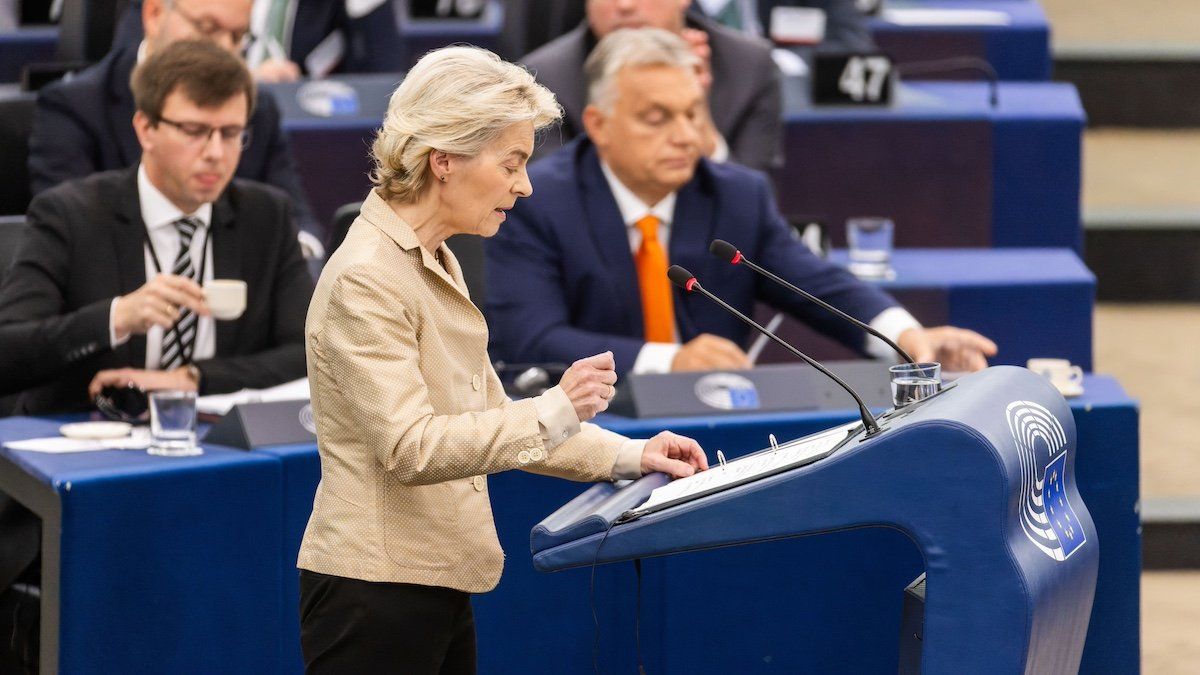European Commission President Ursula von der Leyenhad strong words on Wednesday for Hungary’s strongman, Prime Minister Viktor Orbán, about his close relationship with Russia. After listing a fiery litany of grievances over Hungary’s democratic backsliding and undermining of EU support for Ukraine, she addressed Orbán directly. “There are still some who blame this war not on Putin’s lust for power but on Ukraine’s thirst for freedom, so I want to ask them: Would they ever blame the Hungarians for the Soviet invasion in 1956?”
The powerful rhetoric aimed at painful memories of Soviet tanks crushing freedom fighters in Budapest’s burning streets. Orbán, who had just delivered a relatively meek address about his plans for Hungary’s six-month EU presidency, denied von der Leyen’s accusation and denounced her for using the EU executive as a “political weapon.” Some left-wing MEPs sang the anti-fascist anthem “Bella Ciao,” prompting the parliament’s president, Roberta Metsola, to remind them “this is not Eurovision.”
Why did the gloves come off? Von der Leyen and her team of 26 commissioners are going before Parliament for confirmation hearings between Nov. 4 and 12. Parliament has taken von der Leyen to task in recent weeks for playing softball with Hungary and is preparing to sue the commission over its decision to unlock billions in frozen funds for Hungary last year. Taking Orbán to task might just be what she needs to smooth things over before the hearings.
We’re watching how her message plays, and whether Orbán might change his tune toward Russia — but we’re not holding our breath.
